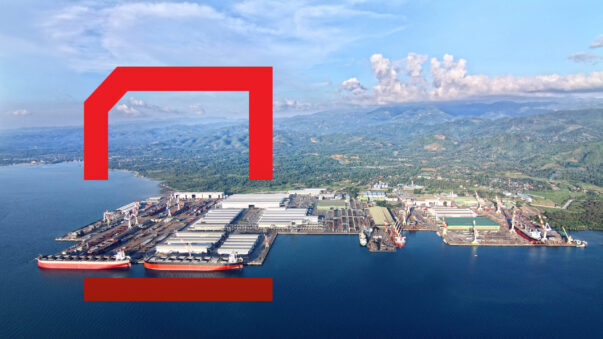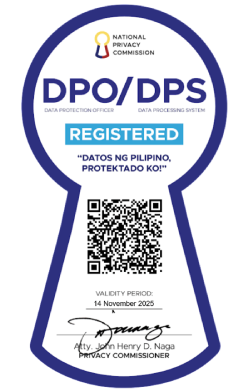

the ph economy at a glance
Overview of the PH Market
Investing in the Philippines offers a strategic gateway to a world of opportunities. The Philippine economy, recognized as one of the fastest-growing in the region, combines a rapidly expanding economy with a skilled, English-proficient workforce, making it a prime destination for foreign businesses. Its youthful population brings a wealth of talent and creativity, ready to drive your business forward. The government actively supports foreign investments with incentives, tax advantages, and pro-business policies, streamlining operations and simplifying processes.
A CASE FOR PH INVESTMENTS
The Philippines:
A stable all-rounder
Over the years, the Philippines has demonstrated remarkable resilience, with its GDP growth rate poised to reach a stable 6.0%. This impressive outlook shines a spotlight on the wealth of investment opportunities awaiting those who act promptly. By taking early steps in the business landscape, you can position yourself to not only weather challenges but also excel and flourish in this thriving environment.
GDP Per Capita in USD
2023GDP Growth Rate
2023GDP Growth Rate Forecast
2024Foreign Direct Investment
in USD millions (2023)Source: World Bank Organization, Asian Development Bank, Deloitte, ASEAN Briefing, Philippine Statistics Authority, Centre for Strategic and Policy Studies (CSPS), Economist Intelligence Unit, Education First, Presidential Communications Office, World Population Review, JLL Property Market Report, PricewaterhouseCoopers (PwC) International Monetary Fund, United Nations Conference on Trade and Development, PRIME Philippines Research & Advisory 2021
A top-notch labor force
The Philippines offers international investors a young, skilled, and English-speaking workforce, adaptable to global standards. At Aboitiz InfraCapital, we drive economic growth by developing Economic Estates that meet the increasing demand for industrial and commercial spaces, positioning the country as an ideal investment destination.
Discover more about the PhilippinesEnglish Proficiency Index
Labor force size in 2024
Median age
More reasons to invest
Investment Incentives
The Philippines offers fair and competitive taxation rates comparable to those in the region. With up to 100% foreign ownership*, frequent tax holidays, and attractive tax rates, businesses have strong potential for profitability.
Corporate Income Tax
(CIT)Income Tax Holiday
(ITH)Foreign Ownership
Note:
*40% foreign ownership restriction applied for public utilities in Electricity distribution, Electricity transmission, seaports, water distribution and sewerage, and Public Utility Vehicles.
Source: World Bank Organization, Asian Development Bank, Deloitte, ASEAN Briefing, Philippine Statistics Authority, Centre for Strategic and Policy Studies (CSPS), Economist Intelligence Unit, Education First, Presidential Communications Office, World Population Review, JLL Property Market Report, PricewaterhouseCoopers (PwC) International Monetary Fund, United Nations Conference on Trade and Development, PRIME Philippines Research & Advisory 2021
Infrastructure Support
Strong Foundations for Our Partners
Cost of Doing Business
Affordable and
competitive
The Philippines offers competitive rates compared to other countries in the SEA region regarding the overall average cost of setting up a business. This makes it a worthwhile place to consider setting up businesses in, especially due to all the continuous development.
Electricity
(KWH)Minimum Wage
/ monthAverage Industrial Land Price
/ sqm.Source: World Bank Organization, Asian Development Bank, Deloitte, ASEAN Briefing, Philippine Statistics Authority, Centre for Strategic and Policy Studies (CSPS), Economist Intelligence Unit, Education First, Presidential Communications Office, World Population Review, JLL Property Market Report, PricewaterhouseCoopers (PwC) International Monetary Fund, United Nations Conference on Trade and Development, PRIME Philippines Research & Advisory 2021
Quality of Life in the Philippines

From all the modern conveniences and entertainment options in the metropolitan cities to gorgeous natural attractions, the Philippines has it all. The beaches in particular rank among the most popular vacation destinations in the world.

Due to its status as a former colony, its proximity to the surrounding nations, and its spread-out geography, the Philippines offers a unique blend of international influences while keeping true to the Filipino trademark trait of hospitality.

Modern technologies, internet access, and vast infrastructure developments are all easily accessible, especially within the major metropolitan areas. Additionally, new developments are always in progress, spreading these technologies to new locations.

Mostly patterned after the educational system of the USA, the Philippines offers educational centers and universities that rank among the top 200 in the world. English usage is also prevalent, making most citizens functionally fluent in the language.




